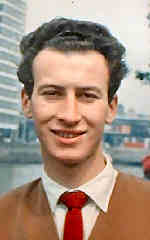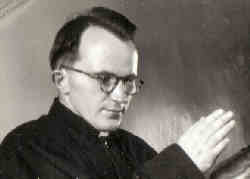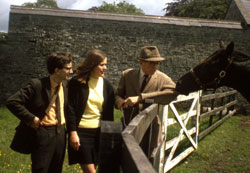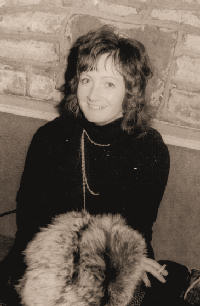 Sound Standards
Sound Standards 
I have always had an interest in radio, and in a slightly more technical way in sound, particularly since living beside, and growing up with, Brian Reynolds in Ballybrack.  Brian became a sound man in Radio �ireann, in the GPO, and strictly observed the exacting standards of his day. Limiters and compressors were for amateurs or emergencies. Sound quality had the same status as good grammar in the English language. It was a discipline and an aid to good communication.
Brian became a sound man in Radio �ireann, in the GPO, and strictly observed the exacting standards of his day. Limiters and compressors were for amateurs or emergencies. Sound quality had the same status as good grammar in the English language. It was a discipline and an aid to good communication. Some took it too far and passed up a scoop for lack of sound quality, but, in general there was a justifiable insistence on high standards. These days, the availability of high technology has led to a certain amount of sloppiness and falling standards. This is particularly evident in "outside broadcasts", where there appears to be an enormous reliance on the automatic volume adjustments built into the machines. It is not unusual, therefore, to hear a sharp rise in background noise if the commentator or interviewee pauses for more than two seconds. You can hear it at its most extreme in commentaries on football matches where the unrestrained volume of the background sound can be considerable. Moderation in all things, and a little manual override, please!
 Radio Killiney
Radio Killiney 
I can remember when the "pickup" was at the cutting edge of technology, at least for those of us with limited means and a thirst for music. The pickup was simply a record turntable which you plugged into the back of the radio. Just as Clive Sinclair sold you a cheap computer (ZX Spectrum) which used the existing TV as a monitor, the pickup provided the disc interface and used the existing wireless set as its amplifier. Needless to say, the "valve" radios of the day came with channels not only for long, medium and short wave reception, but also the inevitable pickup.Brian came up with an innovative use of this facility on the radio sets. Some old earphones served as microphones and were plugged into the pick up sockets in two radios, one in his house and one in mine. A wire was run between the two houses joining one pickup socket to another, and away we went. The resulting "intercom" could be used for inter-house conversations and even, one Christmastide, for a family "radio" quiz between the two houses. Needless to say the volume had to be tweaked to avoid persistent feedback from the radio speakers but that was all part of the fun and adventure!
 Chief of Staff
Chief of Staff 
Unlike Kevin O'Kelly, I have never been imprisoned for my radio/journalism, but I came perilously close to it in 1974.It was a Sunday morning and I got a call at home from a colleague who wondered if I would join him in D�n Laoghaire to do something or other which I can't now remember. I said I wasn't free as I was taping an interview with Daith� � Conaill, who happened at the time to the the Chief of Staff of the Provisional IRA.
No more was said and I got back to rigging up my tape recorder to record Mary Holland's interview with � Conaill on London Weekend Television.
I only learned afterwards that my colleague spent some uncomfortable hours struggling with his conscience, weighing up our friendship and his civic duty to bring the terrorist to book. He finally decided not to inform the G�rda� of my interview with the Chief of Staff, which was probably just as well as we would all have been embarrassed when the full story came out.
It did turn out to be a famous interview after all and was specifically referred to in Mary's obituary in the Guardian.
 German Radio
German Radio 
 I stood in for Brian once, when he was to do sound man to his wife Helga's interview of a German stud farmer in Meath whose stables had been set alight by the IRA. She was reporting for Deutsche Welle, an international German radio station, for which Brian had once worked.
I stood in for Brian once, when he was to do sound man to his wife Helga's interview of a German stud farmer in Meath whose stables had been set alight by the IRA. She was reporting for Deutsche Welle, an international German radio station, for which Brian had once worked. On the morning of our departure for the interview, my cousin, Father Ciaran, home from the States on holiday, turned up at the front door. At my mother's insistance, he accompanied Helga and me on our sound sortie.
 When he opened the door and saw the reverend, who to him was some class of a Vatican spy, the German nearly closed the door in our faces. He finally and reluctantly admitted us and offered us a glass of whiskey. The cousin's comments on the whiskey proved that he was more than a mere man of the cloth and from then on the two got on like a house on fire, the interview went like a bomb (no pun intended), and international relations advanced an inch.
When he opened the door and saw the reverend, who to him was some class of a Vatican spy, the German nearly closed the door in our faces. He finally and reluctantly admitted us and offered us a glass of whiskey. The cousin's comments on the whiskey proved that he was more than a mere man of the cloth and from then on the two got on like a house on fire, the interview went like a bomb (no pun intended), and international relations advanced an inch.On rereading this the other day I realised I had omitted the story of my German language interview about the incident on Deutsche Welle. Now I have very little German, and I mean very little. But I had it. And here I was, an Irishman in the company of the Deutsche Welle correspondent at the scene of the crime. Not an opportunity to be passed up.
But it would have been clearly impossible for Helga to have interviewed me in German. Or would it. My German was not up to scratch but my pronunciation was impeccable and I could read a script. So Helga interviewed me in English off-air, translated my replies into German, handed me the script and away we went. Some people might not appreciate this little strategem but as far as I was concerned it was more than kosher.
 Sound Effects
Sound Effects 
 I also did some sound effects on tape for the real theatre in 1971/2. (Br�d N� Sh�illeabh�in/Dukes was with Amalgamated Artists in the Eblana at the time). These included: The Ginger Man (director Alan Simpson); The Singular Man (director Alan Simpson); Little Red Riding Would (director Chris O'Neill); Look Back in Anger (director Louis Lentin). Chris O'Neill's show was a Mr Pussy panto (Alan Amsby, if you remember). In a later period I also did effects for Aodh � Domhnaill's production of "Out of the Flying Pan".
I also did some sound effects on tape for the real theatre in 1971/2. (Br�d N� Sh�illeabh�in/Dukes was with Amalgamated Artists in the Eblana at the time). These included: The Ginger Man (director Alan Simpson); The Singular Man (director Alan Simpson); Little Red Riding Would (director Chris O'Neill); Look Back in Anger (director Louis Lentin). Chris O'Neill's show was a Mr Pussy panto (Alan Amsby, if you remember). In a later period I also did effects for Aodh � Domhnaill's production of "Out of the Flying Pan".
These were laboriously done by splicing ribbon tapes. It was exacting and tiring work but could be very satisfying and there was plenty of scope for imagination.
It was long before the age of "effortless editing" ushered in by the digital revolution. This revolution has opened the area up to a whole new set of people who would never have thought of dancing the traditional "reel to reel".
Some further sound links:
Brian and the GPO
The Flying Enterprise
DAB Radio
Sloinne agus Seoladh (RnaG)
Flying Enterprise (R� Curious Ear)